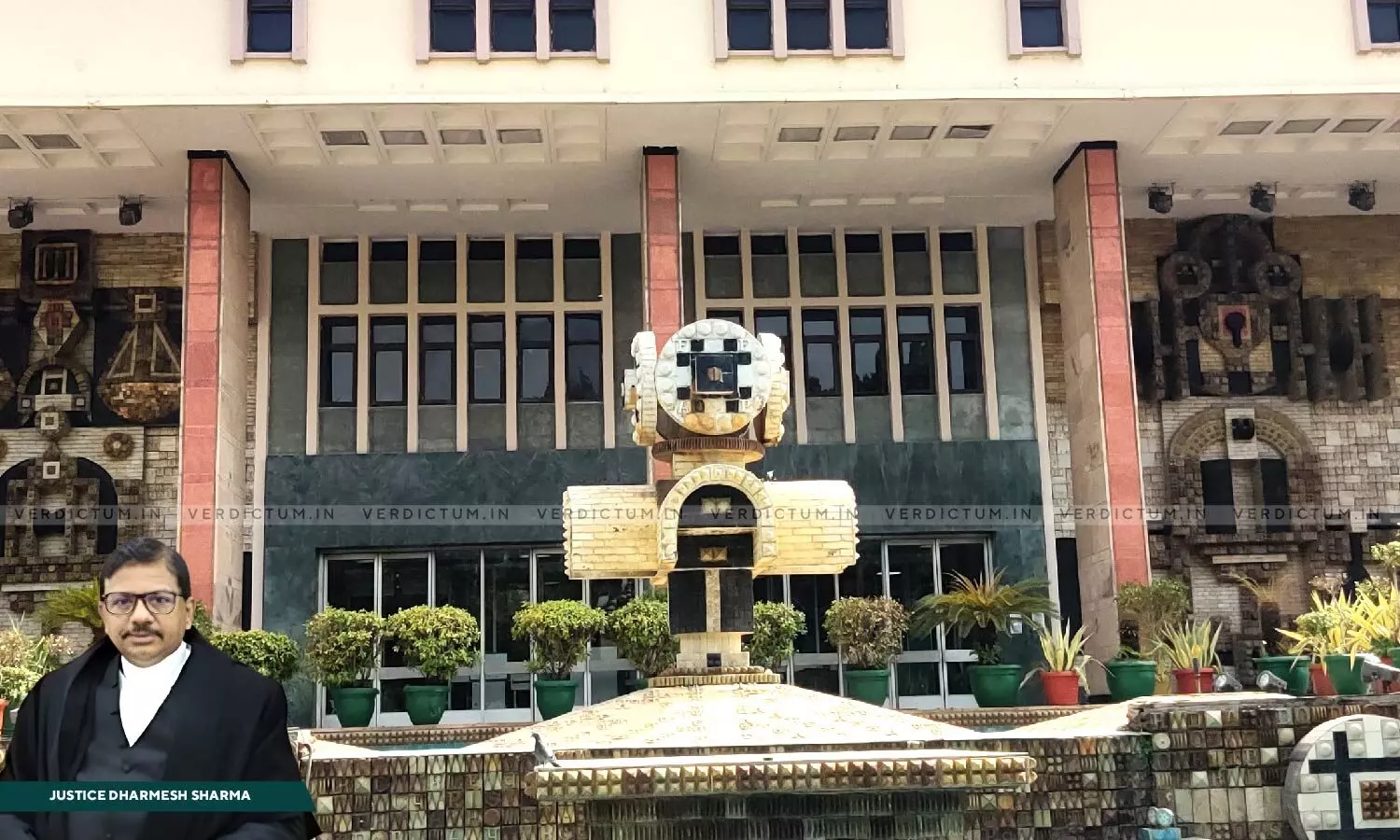
Helping Injured On Public Road/Highway Is Prime Duty Of Everyone: Delhi HC Grants ₹5 Lakhs To Widow Of 'Good Samaritan' Driver
 |
|Invoking the doctrine of notional extension of acts falling in the course of employment, the Delhi High Court recently directed an insurance company to pay Rs. 5 lakhs as compensation to the bereaved spouse of a driver who tragically lost their life while fulfilling their duties as a driver, aiding victims of a road accident.
The Single Judge Bench of Justice Dharmesh Sharma was dealing with an appeal filed by a widow under Section 30 of the Employee’s Compensation Act, 1923 against an order passed by the Commissioner whereby her application for compensation was dismissed.
Advocates Vipin Kumar Mishra, Lalit Kumar Gupta and Manoj Kumar Yadav appeared for the Appellant while Advocate Rakesh appeared for the Respondent.
Background: One late Balwan Singh, was employed as a driver with the registered owner for over 10 years. On June 25, 2018, while driving an insured truck Balwan Singh stopped to help a victim of another accident. While returning to his truck, he was struck by a speeding vehicle, resulting in fatal injuries. The wife of the late Balwan Singh sought compensation under the Employees' Compensation Act (EC Act), stating that the registered owner paid only Rs. 30,000 through a cheque and denied further compensation, arguing that Balwan Singh was a casual employee.
The Commissioner framed issues, including the (i) existence of an employer-employee relationship and if so (ii) whether an accident resulting in death occurred in the course of employment with a registered owner. The Commissioner ruled in favour of the claimant on issue 1 but against her on issue 2, stating that since the deceased added peril voluntarily, no liability could be imposed on the registered owner or the insurance company. Aggrieved, the claimant approached the High Court.
Upon considering the submissions, the High Court found a stark blemish on the part of the Commissioner in holding issue No.2 against the appellant/claimant interpreting Section 3 of the EC Act to mean that the employer is liable for compensation only if personal injury is caused to an employee by accident ‘arising out of and in the course of employment. The High Court noted that the Commissioner held that since the deceased added peril only when he met with an accident at his own will, no liability could be fastened on the registered owner as also resultantly on the insurer and the claim petition was dismissed.
In its analysis, the High Court criticized the Commissioner's decision, emphasizing the duty to help individuals in distress on public roads. It cited the doctrine of "notional extension" and the concept of 'Good Samaritan laws', which protect those providing assistance in emergencies. The Court stated, "It is well ordained in compensatory jurisprudence that there is a doctrine of “notional extension” of the term “in the course of employment” whereby any accident resulting from some risk incidental to duties comes under the phrase “in the course of employment”. The instant matter is one where this doctrine of notional extension of acts falling in the course of employment can be invoked, which by all means, would be in consonance with the underlying public policy of preventing hazards, loss of life and property involving motorists on the public road/ highways in the EC Act as also the Motor Vehicles Act, 1988."
The Court also added, "An individual, who out of sheer generosity helps someone in distress, is a ‘Good Samaritan’ according to the parable in Gospel of Luke in the Holy Bible . Thus, Good Samaritan laws shield/protect a rescuer from being sued if the rescue miscarries, except in cases of gross negligence or recklessness. The objective is to reduce any 11 hesitation bystanders may have about giving assistance to those who need such assistance. At the cost of repetition, the reluctance to incur legal trouble is one factor that Good Samaritan laws address. The legislative and judicial axiom should be to protect persons from punishment who out of benevolence provide help to a fellow person in need of aid and to reduce any hesitation bystanders may have about giving assistance to those who need it. In the absence of such legal protection, attributes such as ‘kind-heartedness’, ‘kindness’, ‘empathy’ towards strangers, which makes humans the social animals they are, who rely on each other for survival and emotional well-being, would be stripped of their very humanity rendering these attributes redundant. Thus, in absence of legal protection, it would become impossible for individuals with kind hearts to act out of benevolence, help a person in distress or a victim of motor vehicle accident."
The High Court concluded that the Commissioner's decision was morally and legally unfathomable, setting aside the order and remanding the matter for reassessment of compensation. "To sum up, the reasons assigned by the learned Commissioner that it was in no part of the duty of the deceased to stop his truck and go over to the other side to help someone and by doing so he added peril to his oneself, is not only morally and legally unfathomable but also does not conform with the purpose or the objective of the EC Act as well as the M.V. Act. Incidentally, the Central Motor Vehicles Rules, 1989 , very significantly mandates a comprehensive ‘Training Manual’ for improving the skills of the drivers, that inter alia not only mandates the motorist to have the medical tool kit in the motor vehicles while driving on public road/highways but also to make them abreast with life saving techniques to provide medical help in case of motor accidents, not only to oneself but anybody else involved in the motor accident", observed the Court in its Judgment.
Accordingly, the Court set aside the impugned order and directed that the claimants shall be paid interim payment of Rs. 5 lakhs with interest 12% p.a. from the date of accident.
Cause Title: Kanta v. Gurvinder Kapoor & Anr. [FAO 265/2021]